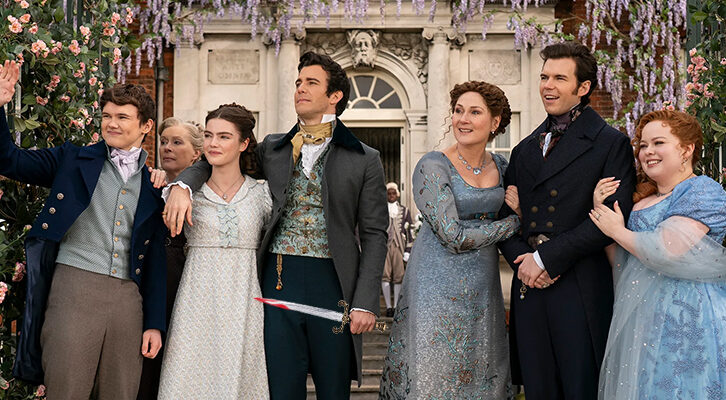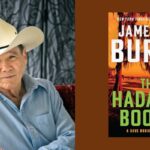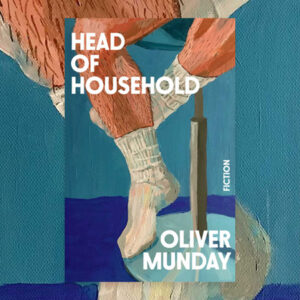
When Nerds Play Sports
Puns, Dunks, and the Search for Lost Youth
If you walk past the Milton Street basketball courts in Greenpoint, Brooklyn, on any summer weekend morning, and if it isn’t raining or otherwise inclement, and if you, by luck or design, time it correctly, and there have been no byes or forfeits due to poor attendance, no scheduling wrinkles, you will see them there, in God’s own idea of purple, playing blacktop basketball.
The courts and the adjoining fenced-in jungle gym are named, preposterously, American Playground, and the players are the Purple Team, one of twenty teams that make up the Word Bookstore basketball league. For the past few years I have played on this team, which is historically not the worst in the league, but the second-worst.
The league, which self-describes as “co-ed adult nerd basketball,” is in its seventh year. The “nerd” designation comes from its affiliation with the bookstore and its appeal to lit enthusiasts. Part of the enrollment process involves a short quiz on cursory book knowledge. Team names, per protocol, must be a basketball/literature play on words. Last year, the Purple Team was called Their Eyes Were Watching God Shammgod, a Zora Neale Hurston/late 90s Washington Wizards pun. (If that strikes you as hacky, you should see our defense.)
I asked the league Commissioner, a guy named Jon, who most of the players are. “There are writers, readers, publishers, teachers, librarians, doctors, musicians and every other type of creep you can think of,” he said. “No weirdos, thankfully.”
Imperial Purple boasts an architect, a reality TV producer, a couple of editors. I myself work at a small fine art magazine. We’re also unreasonably good at trivia. We’ve got a Jeopardy! champion, who’s way more fit than you would expect. Some of the guys run a trivia night at a local bar called Pete’s Candy Store, and one of them can even dunk. Somehow, this doesn’t help us win games.
I joined the team after returning to New York from graduate school in New Hampshire. My friend Amanda was on the team, and they were looking for more women to play. (There’s a rule that each team must have a woman on the court at all times—a sort of semi-effective Title IX to keep the men from acting like jerks.)
I showed up for the first game and a guy named Kyle, a burly fellow, 6’2’’ if he was an inch, shucked his purple t-shirt right off his back and gave it to me. He had an alternative in his bag, it turned out: a throwback jersey, Muggsy Bogues, Charlotte Hornets. That should have set the tone right there.
* * * *
Lit-adjacent sports endeavors have a long history. Summers in New York, The Paris Review, The New Yorker, Vanity Fair, Harpers, and other upper crust publications assemble softball teams. One imagines the trash talking can get pretty droll.
This year, the National Book Foundation is hosting “The Other NBA” (a riff on Twitter’s conflation of the National Basketball Association and the National Book Awards). Billed as “The Greatest Basketball Game in Literary History,” the game will be played by a roster of writers and editors, with proceeds going to the National Book Foundation’s after school reading program in Detroit. [Full disclosure: two editors from Literary Hub will be playing in that game.]
In East Hampton, there’s the annual Artists & Writers Charity Softball Game, first played in 1948 by no lesser luminaries than Willem de Kooning, Franz Kline, and Jackson Pollock. The event benefits various worthy causes; if you need more proof of its legitimacy, watch Alec Baldwin’s video testimonial on their site.
Out in Brooklyn, things aren’t so tony. American Playground lies at the intersection of Milton and Franklin Streets, across from Word Bookstore. To the north is Newtown Creek, our neighborhood Superfund site; to the east, the massive, reflective domes of New York City’s largest wastewater treatment plant. When the wind blows a certain way, you can feel a chemical sting in your lungs that—who knows—might turn out not to cause cancer.
As for the courts themselves, they are uneven and cracking. Overnight rain produces some gnarly water hazards. A low-hanging tree on the south side drops broad, slippery leaves and blocks shots from downtown.
All of this is not to suggest that we who play in the Word league are particularly tough, scrappy, or hard. No, the opposite is true. We are pale, paunchy, nearsighted. We squint into the sun, as surprised as any onlooker when we display the slightest proficiency. A solid percentage of my team is hungover at any given game. I’d put that percentage at fifty. I can personally attest to the fact that nothing deepens regret and self-loathing like forty minutes of knee-punishing, gut-roiling, hungover basketball in the July sun. To our credit, no one has ever thrown up.
* * * *
What does it mean to be on the second worst team in an amateur basketball league with no actual stakes? For one, it’s hard to see how it could get less dignified. There is, at least, a certain distinction in being dead last. Underdog narratives begin at rock bottom. But second-to-last? What’s that?
One of my first games with the team, someone suggested we warm up with a very basic lay-up drill. You know: one person shoots a lay-up, one person rebounds. Switch lines at the end of each turn. It took maybe three minutes for the whole thing to dissolve into chaos. Some people got bored and wandered off. Some had to take a break, chests heaving, to theatrically stretch bum knees. Others just seemed confused.
Last year, before the playoffs, the Commissioner offered each team a detailed breakdown of their strengths and weaknesses. “Purple!” ours began. “A team that struggles to share the ball fluidly, because they space the floor poorly!” A kind way of saying, “You’re a mess out there. You’re just doing whatever.”
Still, I don’t want to overplay how badly we suck. Moments of triumph happen; improbable shots get sunk. “Beauty is not the goal of competitive sports,” wrote David Foster Wallace. But beauty isn’t altogether absent from the courts on Milton Street.
We face down teams with actual talent and skill. That’s beautiful. There’s a silly, wonderful league rule that shots made from the center circle are worth five points, and we once won a game this way at the buzzer. That was beautiful.
At the most basic level, it’s beautiful to see a flawlessly deployed basketball traverse space and drop cleanly into a ring an indeterminate distance way, all because some owlish and otherwise reserved web editor’s arm remembered how.
* * * *
I am trying to get at the appeal of sports to book-minded people. It may just be as simple as “sports are fun.” It may be the draw of any activity besides sitting in a desk chair. Certainly, in the case of the East Hampton and NBF events, there’s a level of novelty to watching well-known writers run around like fools. Look at them. Bunch of dorks in Rec Specs.
Being good at sports holds currency in youth, but doesn’t translate into an adult skill set. Athleticism is not fungible like that. Good hand-eye is only impressive in an office environment when your colleague tosses you the stapler. If you run seriously on weekends, play tennis or squash, that’s called a hobby, and it’s of no more use to the indifferent world of grown-up endeavors than philately or strumming the ukulele.
In the opening of John Updike’s Rabbit Run, Rabbit Angstrom, former high school basketball star now twenty-six and growing soft, happens upon some kids playing a pick-up game and forces them to let him play.
Writes Updike:
He goes into the scrimmaging thick of them for the ball, flips it from two weak, grubby-knuckled child’s hands, has it in his own. That old stretched leather feel makes his whole body go taut, gives his arms wings. It feels like he’s reaching down through the years to touch this tautness.
I’d posit that part of the draw of writers to participatory sport is nostalgia. A return to the time before bodies started deteriorating and options started being limited by the simple fact that you cannot have all lives. Likely this is true of any adult, but writers are especially prone. The nature of the work is memory-based. All writers dwell in the past: the good ones are not too precious about it.
* * * *
I had to sit out this season, on account of being, as people say, “very pregnant.” You can’t, or shouldn’t, play contact sports during pregnancy. My own style of play is especially ill suited to the third trimester. It consists of great self-sacrifice and dive-taking, combined with willful stoicism: “Don’t help me up. I’m fine.”
When word got around that I wouldn’t be playing this season, I got a terse email from the purple team captain. (I am medium-good and show up reliably.) “I wish you all the best,” he wrote. Maybe I’m imagining the icy tone. I spared him an explanation about how missing out on a whole summer of jokey recreational basketball was the only factor that made me second guess having a kid. This isn’t the kind of remark that gets taken seriously, even if it’s true.
The season has begun in earnest now, without me. I live just a few blocks from the courts, and some weekend mornings, I walk by there. It’s hard not to feel a little jealous. They are there in their t-shirts, Pantone 2627 with cut-off sleeves. They are reaching down through the years to touch their former tautness. I watch until someone throws up an egregious, laughable brick, and then I head home.
Erin Somers
Erin Somers's fiction and non-fiction has appeared in Tin House, Ploughshares, The Hairpin, The Rumpus, and more.



















